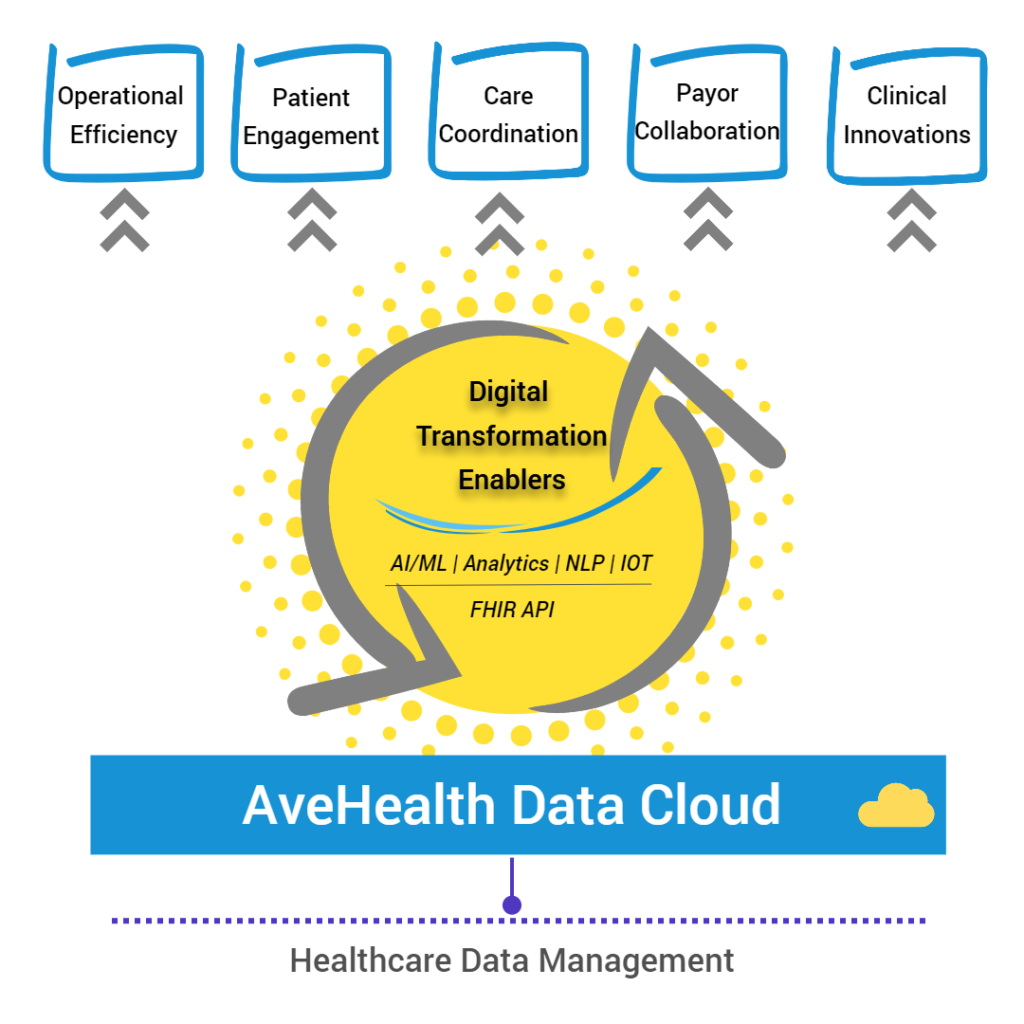
Embracing Digital Transformation in Healthcare: Unlocking Opportunities and Overcoming Challenges
May 22, 2023
The healthcare industry is at the brink of a technological revolution that promises to revolutionize healthcare outcomes and elevate patient experiences. While advancements in medical and technical fields present exciting possibilities, the escalating costs of healthcare remain a pressing concern. In this blog post, we will delve into the opportunities and challenges brought about by digital transformation in healthcare.
Opportunities for Enhanced Healthcare: Global healthcare spending was estimated at $9 trillion, primarily due to inefficiencies in care delivery and the exorbitant costs associated with drug development. With an increase in life expectancy and the prevalence of chronic and lifestyle-related diseases, there is a growing demand for improved elderly healthcare, specialized care programs, and comprehensive strategies for prevention, diagnosis, and optimized care.
Additionally, empowered patients are driving the need for digital transformation in healthcare. They seek active involvement in treatment decisions, convenient point-of-care options, value-added services, home diagnostics, and seamless health information sharing. This shift toward patient-centric care places significant pressure on the healthcare system to adapt and provide tailored solutions.
Challenges in Healthcare Data and Analytics:
While digitalization in healthcare has been progressing gradually, the volume of patient-level data has soared over the past decade. However, the challenge lies not only in the sheer volume but also in the diverse nature of healthcare data. It encompasses a wide range of information, including demographics, diagnoses, medications, radiology images, and more. Ensuring the accuracy and quality of this data is critical for sound clinical decision-making.
Furthermore, the advent of IoT, sensors, and mobile technology has expanded the possibilities of collecting diagnostic information from connected medical devices, smartphones, and wearables. However, due to the lack of interoperability and standardized communication between disparate systems, healthcare data remains highly compartmentalized and underutilized.
Addressing the Challenges:
Accelerating Digital Transformation To overcome these challenges, the healthcare industry must wholeheartedly embrace digital transformation and adopt intelligent technologies. Here are key areas that can drive progress:
- Standards and Interoperability: Implementing standardized protocols, such as Fast Healthcare Interoperability Resources (FHIR), can facilitate seamless data sharing and communication between different healthcare systems, enabling effective integration and analysis of patient data.
- Modern Data Management Platforms: Moving away from traditional data warehouses, healthcare organizations can leverage modern data management platforms. These platforms provide a unified, scalable, and flexible infrastructure for managing and analyzing healthcare data. By decoupling data from specific applications or systems, organizations can unlock the true potential of their data and enable secure and efficient data access and utilization.
- Artificial Intelligence and Machine Learning: AI and ML hold immense promise for healthcare transformation. Chatbots and digital assistants can redefine patient interactions, while clinical decision support systems can assist healthcare professionals in making informed decisions. ML-powered natural language processing simplifies complex medical terms for patients, and predictive analytics improves operational efficiency and optimizes business processes.
- Cloud Computing: Adopting cloud systems offers numerous advantages, including streamlined data archiving, lower storage costs, accelerated innovation cycles, and improved collaboration. Hybrid systems that seamlessly integrate on-premise and cloud data worlds provide flexibility and scalability.
A Vision for an Intelligent Healthcare Enterprise:
To achieve an intelligent healthcare enterprise, healthcare leaders must reimagine operational and clinical processes and embed intelligent technologies within core business operations. This approach allows care providers to prioritize high-value tasks and outcomes, ultimately leading to improved patient care and enhanced experiences.
Digital transformation in healthcare presents unparalleled opportunities for enhanced care delivery, improved patient experiences, and cost efficiencies. However, challenges related to data management, interoperability, and regulatory compliance must be addressed. By embracing intelligent technologies, adopting standardized protocols, and leveraging cloud computing, healthcare organizations can successfully navigate these challenges and pave the way for a future of value-based care. The time has come to fully embrace the potential of digital transformation and unlock a new era of healthcare excellence.
